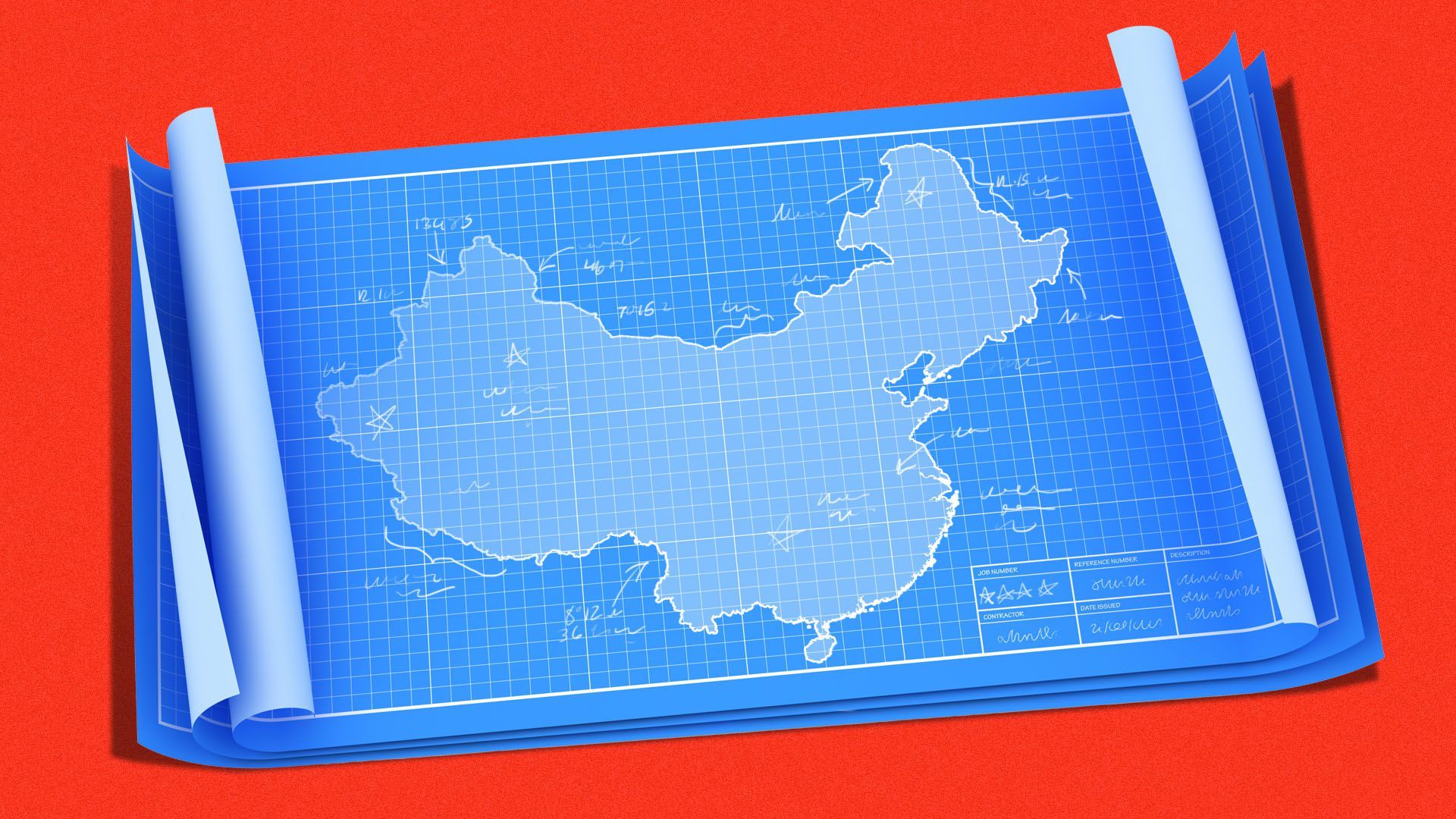Bethany Allen-Ebrahimian

The U.S. State Department's Office of Policy Planning is set to release a blueprint for America’s response to China’s rise as an authoritarian superpower, Axios has learned.
Why it matters: The lengthy document calls for strong alliances and rejuvenation of constitutional democracy. Axios obtained a copy.
The unclassified paper, called "The Elements of the China Challenge," draws inspiration from an influential article published in 1947 by the policy planning team’s founder, U.S. diplomat George Kennan, in which he introduced the idea of containment as a strategy to deal with the Soviet Union.
Details: The document, which is more than 70 pages long, examines the Chinese Communist Party's harmful conduct and its ideological sources, the vulnerabilities China faces, and how the U.S. and its allies should respond.
"Meeting the China challenge requires the United States to return to the fundamentals," the paper states. The U.S. must fashion "sturdy policies that stand above bureaucratic squabbles and interagency turf battles and transcend short-term election cycles. The United States’ overarching aim should be to secure freedom."
The blueprint: The paper lays out "ten tasks" for the U.S. to accomplish.
Promoting constitutional government and civil society at home.
Maintaining the world's strongest military.
Fortifying the rules-based international order.
Reevaluating its alliance system.
Strengthening its alliance system and creating new international organizations to promote democracy and human rights.
Cooperating with China when possible and constraining Beijing when appropriate.
Educating Americans about the China challenge.
Train a new generation of public servants who understand great-power competition with China.
Reforming the U.S. education system to help students understand the responsibility of citizenship in a complex information age.
Championing the principles of freedom in word and in deed.
Between the lines: The paper does not showcase the unilateralism that has characterized some elements of President Trump's foreign policy. It maintains conservative undertones, including an emphasis on economic liberty and a strong military.
The Trump administration "concluded that the CCP’s resolute conduct and self-professed goals require the United States and other countries to revise assumptions and develop a new strategic doctrine to address the primacy and magnitude of the China challenge," the document states.
What they're saying: “While the pandemic opened the world’s eyes to the China challenge, many in the United States and other nations still fail to appreciate the CCP’s determination to remake the world order in its quest for global preeminence," a senior U.S. official told Axios.
Expert take: "One unique feature of the memo is its focus on how the CCP's worldview shapes its behavior, which has been rare in U.S. government documents and should be a larger part of U.S. policy debates," said Rush Doshi, director of the Brookings China Strategy Initiative, who reviewed a copy.
But the paper mostly overlooks certain key topics, including allied industrial policy, cross-border data flows and new tech coalitions, said Doshi. And "economics and technology are at the center of U.S.-China competition, but they barely appear in the memo’s prescriptions," he added.
Of note: The arguments contained in the paper contrast sharply with those of Kiron Skinner, former director for policy planning at the State Department, who initially led the effort to formulate what she described as a China-focused Kennan-style paper.
Skinner faced intense criticism after claiming in April 2019 that China's rise was "a fight with a really different civilization" and "the first time that we will have a great power competitor that is not Caucasian.” She left the State Department a few months later.
The document obtained by Axios states pointedly on the first page that "China is a challenge because of its conduct." It does not cast great-power competition in civilizational or racial terms.
No comments:
Post a Comment